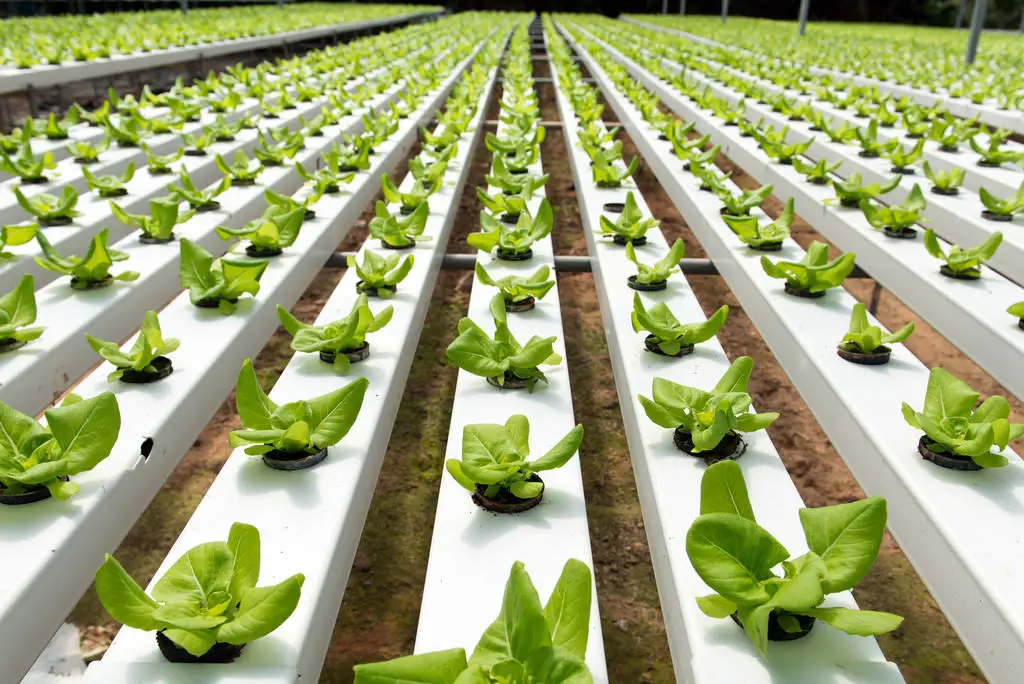
Photo via aqua.merch of a greenhouse in Utah.
While the USDA organic program is far from perfect, most people still don’t recognize just how much hard labor went into the creation of the iconic green-and-white seal you’ll find on produce and food packages everywhere.
The pioneers of the U.S. organic farming movement spent decades not only tending the land to help nourish both people and the environment (especially the soil), but also to make sure that the label itself held up to their own rigorously set standards for quality.
But now, after a series of razor-thin votes by the National Organic Standards Board, organic farmers are threatening to leave the program they helped create, after the announcement of what could be one of the biggest and most controversial changes to organic standards in years.
Organic Stewards Threaten to Leave National Program
As noted in this article from The Washington Post, numerous organic farmers have said that they may leave the organic program entirely after a new addition to the organic standards have left many stunned: hydroponic farming.
While one of the key tenets of the organic farming movement was originally to maintain soil health and to preserve vitamin and mineral content in the food being grown, hydroponic farming eschews the need for soil and instead pumps the nutrients in through water based systems that often include farmed fish.
Hydroponic farming was finally approved after a series of 8-7 votes by the National Organic Standards Board last week, but many longtime organic farmers are not exactly thrilled with their inclusion in the program they helped to create and grow over the years.

A worker examines hydroponically grown onions. Photo via NASA.gov/Wikipedia Commons
“They did incalculable damage to the seal tonight. It’s just going to take them a while to realize it,” said Dave Chapman to the Post.
Chapman is an organic tomato farmer who lobbied to have hydroponics banned from the program according to the article, which noted that aeroponic farming will not be allowed, but hydroponic will.
While most organic farmers and food companies will likely to continue operating as normal, others who have devoted their life to tending the soil and believe their unique style is the true definiton of organic are wondering aloud whether it may be time to try something new.
In 2010 the NOSB banned virtually all types of soilless organic farming from the program, but that has now become a thing of the past.
“The question is, do we abandon the National Organic Program and find a new way to identify ourselves?” Chapman said according to the article. “It’s a genuine question. I don’t know. We feel powerless.”
Where Do Organic Farmers (And Consumers) Go Next?
Organic farmers are a resilient bunch if nothing else, and many of them have noticed the deterioration of USDA organic standards over the years.
While many choose to sell their products at farmer’s markets, others may instead share the benefits and unique aspects of their products via their food packages, websites, and through other avenues.
Considering a recent Food Safety News report showed that a surprisingly large majority of organic food sold in grocery stores comes from overseas, it’s more important than ever for consumers to support companies and farmers that do it the right way, and shopping at local farmer’s markets or buying direct are a few of one of the best ways to do just that.
In addition, consumers (and farmers who wish to break free from the system) should also research the ‘Certified Naturally Grown’ label and program, which was created by groups of organic farmers protesting together against the watering down of U.S. organic standards.
Is Hydroponically Grown Food Worth Your Organic Dollar?
Because hydroponic farming can be done indoors and especially in urban areas without access to farmland, it provides one possible tool for more efficiently feeding more people on less land. Of course the question raised by organic farmers is whether or not hydroponically grown food is worth it considering the many advantages offered by classic organic farming.
“We see it as a useful and productive agricultural system and there is a lot of demand for organic hydroponics,” said Ryan Brouillard, who works for Quality Certification Services in Florida (a certifier of organic, hydroponic, and aquaponic crops) according to Ag Funder News. “Other certifiers look at the rules as written and see that it is a soil-based standard so I can see where they are coming from too.”
According to Marion Nestle, a well known professor, nutritionist and author from New York University, some hydroponic growers are capable of achieving nutrient levels as high as normal levels (whether organic or “conventional” was not specified) or sometimes even higher, depending on the type of nutients used.
But the question is whether or not a hydroponic food — utilizing man-made grow lights instead of the life-supporting energy of the sun, ultimately offers the same benefits as its truly organic counterparts.
Plants that grow in wild areas also have higher amounts of disease-protecting antioxidants, which they release as defense mechanisms in the wild and then pass on to people who eat them.
At the end of the day, like all major innovations, the consumers will decide the winner, and ultimately, whether hydroponically grown organic foods are worth premium dollars or not.
Thanks for reading! Let us know what you think about hydroponics being classified as organics in the comments section below.
You can also click here for more articles like these in your inbox (and a free eBook).
Recommended Reading:
Small Farmers Band Together Create Different Label to Protest Corporate Control of Organics
Sorry, Monsanto: GMO Crops Now Banned in Nearly 40 Countries, Grown in Just 28
No Toxic Pesticides or GMOs Allowed Here: Welcome to America’s Only “Organic City”
Thanks for installing the Bottom of every post plugin by Corey Salzano. Contact me if you need custom WordPress plugins or website design.




